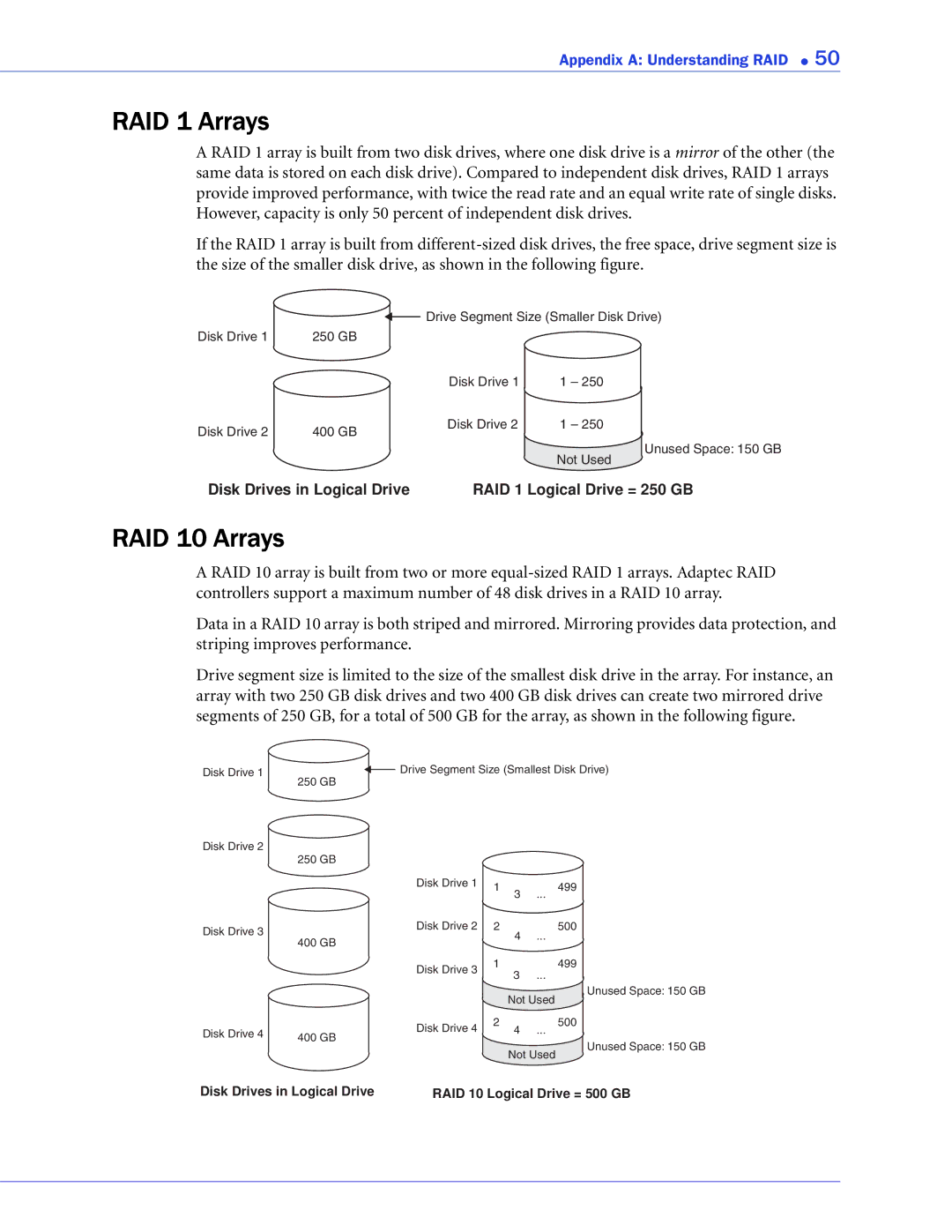
Appendix A: Understanding RAID ● 50
RAID 1 Arrays
A RAID 1 array is built from two disk drives, where one disk drive is a mirror of the other (the same data is stored on each disk drive). Compared to independent disk drives, RAID 1 arrays provide improved performance, with twice the read rate and an equal write rate of single disks. However, capacity is only 50 percent of independent disk drives.
If the RAID 1 array is built from
|
| Drive Segment Size (Smaller Disk Drive) | |
Disk Drive 1 | 250 GB |
|
|
|
| Disk Drive 1 | 1 – 250 |
Disk Drive 2 | 400 GB | Disk Drive 2 | 1 – 250 |
|
| ||
Unused Space: 150 GB
Not Used
Disk Drives in Logical Drive | RAID 1 Logical Drive = 250 GB |
RAID 10 Arrays
A RAID 10 array is built from two or more
Data in a RAID 10 array is both striped and mirrored. Mirroring provides data protection, and striping improves performance.
Drive segment size is limited to the size of the smallest disk drive in the array. For instance, an array with two 250 GB disk drives and two 400 GB disk drives can create two mirrored drive segments of 250 GB, for a total of 500 GB for the array, as shown in the following figure.
Disk Drive 1 | Drive Segment Size (Smallest Disk Drive) | |||
| 250 GB |
|
|
|
Disk Drive 2 |
|
|
|
|
| 250 GB |
|
|
|
| Disk Drive 1 | 1 | 3 ... | 499 |
|
| |||
|
|
|
| |
Disk Drive 3 | Disk Drive 2 2 | 4 ... | 500 | |
400 GB |
|
| ||
|
|
| ||
|
|
|
| |
| Disk Drive 3 | 1 | 3 ... | 499 |
|
|
| ||
|
|
|
| |
|
|
| Not Used | Unused Space: 150 GB |
|
|
|
| |
Disk Drive 4 | Disk Drive 4 | 2 | 4 ... | 500 |
|
| |||
400 GB |
|
|
| |
|
|
|
| |
Unused Space: 150 GB
Not Used
Disk Drives in Logical Drive | RAID 10 Logical Drive = 500 GB |
